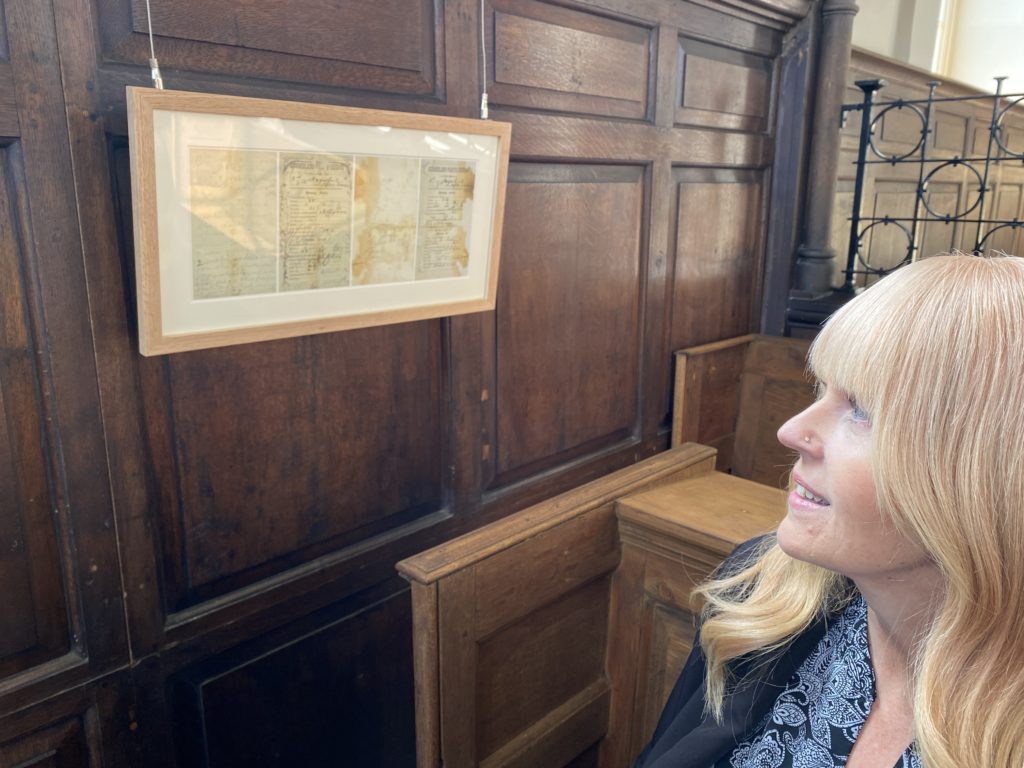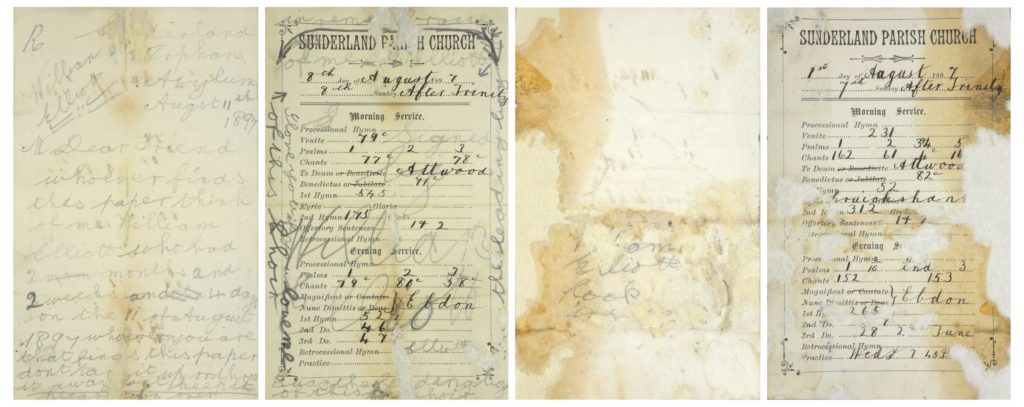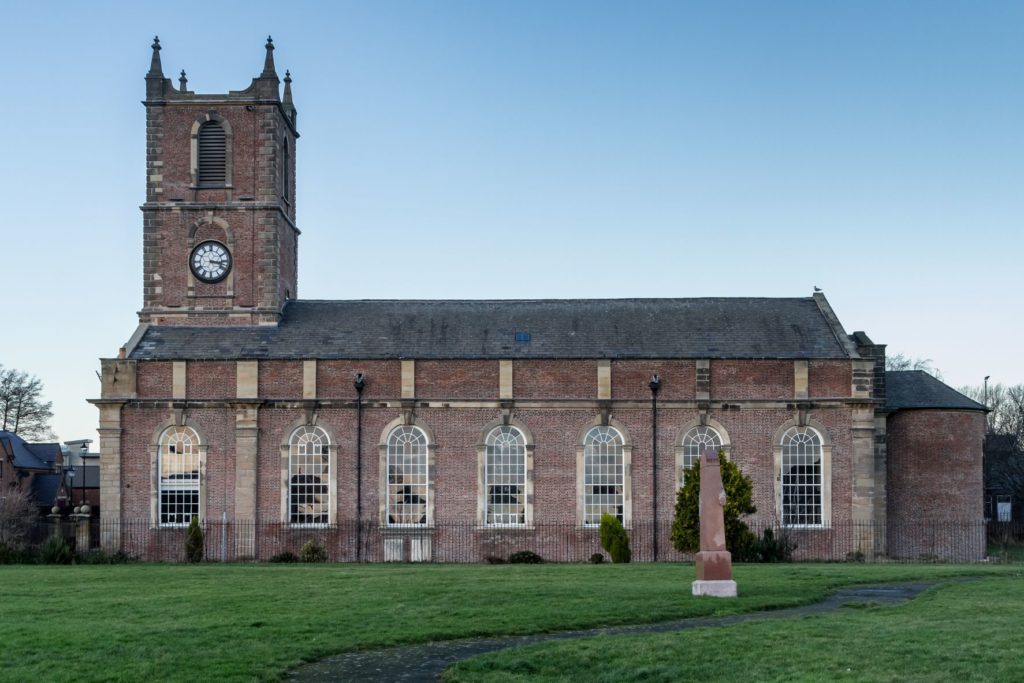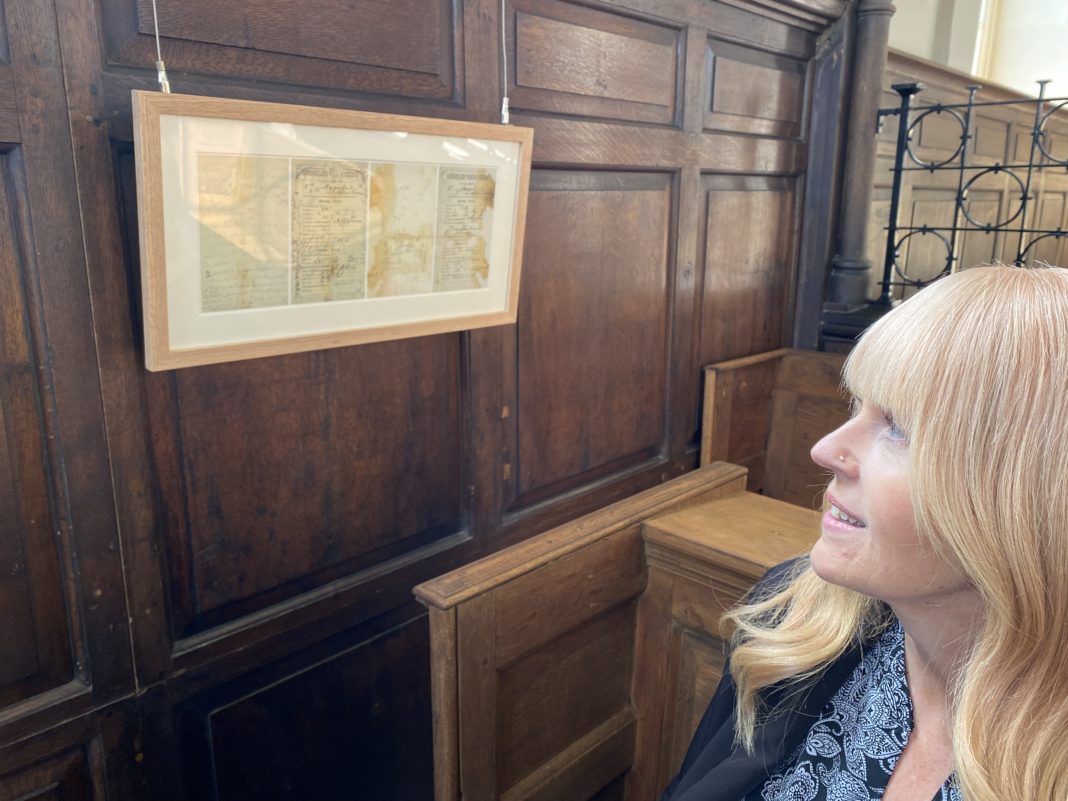A deeply moving letter, written by an orphanage choirboy and hastily stuffed down the side of a church pew 125 years ago, has been found by workmen restoring the building.
Addressed simply to ‘Dear friend’, the letter was written on 11 August 1897 by 13-year-old William Elliott, on the back of a chorister’s order of service sheet, at Sunderland Parish Church, also known as Holy Trinity – now Seventeen Nineteen – on the North East coastline.
In it, William – one of 50 sons of seafaring men housed at the nearby Sunderland Orphan Asylum – begs not to be forgotten.
And, thanks to the efforts of Seventeen Nineteen, which now runs the fully restored Grade I listed Georgian building – in the care of the Churches Conservation Trust – as a performance, celebration and event space, he never will be.

Research by Seventeen Nineteen volunteers revealed William’s father was chief officer Thomas Duncan Elliott who was sailing on the vessel Skyros when he was washed overboard in 1887.
William’s mother Sarah Ann Elliott was left a widow with four children and, although the family appears to have been fairly comfortable until Thomas’ death, by 1891 Sarah was working as a dressmaker to keep the family afloat.
As a consequence of losing his father, William was eligible for admittance to the orphanage and was ultimately accepted in 1892. He was discharged on 29 October 1897, his 14th birthday – just weeks after he wrote his letter.
And, only now, after conservationists removed decades of dirt, dust, a little black paint and layers of wax polish, can William’s words, written in pencil as his time at the orphanage drew to a close, be deciphered.
“Dear friend, whoever finds this paper think of William Elliott who had 2 months and 2 weeks and 4 days on the 11 of August 1897. Whoever you are that finds this paper don’t tear it up or throw it away… keep it in remembrance of me, W. Elliott…I was the leading boy of this choir… I love you if you love me…”


This plea to be remembered has inspired Seventeen Nineteen to launch The Dear Friend project, inviting anyone who wishes to, to write a letter back to William.
“His letter has touched us all,” said Tracey Mienie, Seventeen Nineteen’s Centre Manager. “He was clearly very aware that his time at the orphanage – and in the choir – was ending and I think apprehension at what his future may hold comes across in his words.”
Although most boys from the orphanage were destined for a life at sea, William’s high standards of literacy and numeracy earned him a place – probably as an errand or office boy – with a local solicitor, Mr Herbert.


But after 1901, the trail grows cold and nothing more can be found of William.
However, next to the framed copy of his letter, which hangs in the church’s Lady Chapel next to the very seat in which the boy composed it, is a large wooden plaque commemorating the dead of the Great War.
And, listed among the dozens of names of the parish’s fallen men and boys, is the unnervingly similar W.Elliot.
- Anyone who wishes to take part in the Dear Friend project and write to Seventeen Nineteen is asked to contact Lily Daniels at 17nineteen@thecct.org.uk or call 0191 560 0288
















